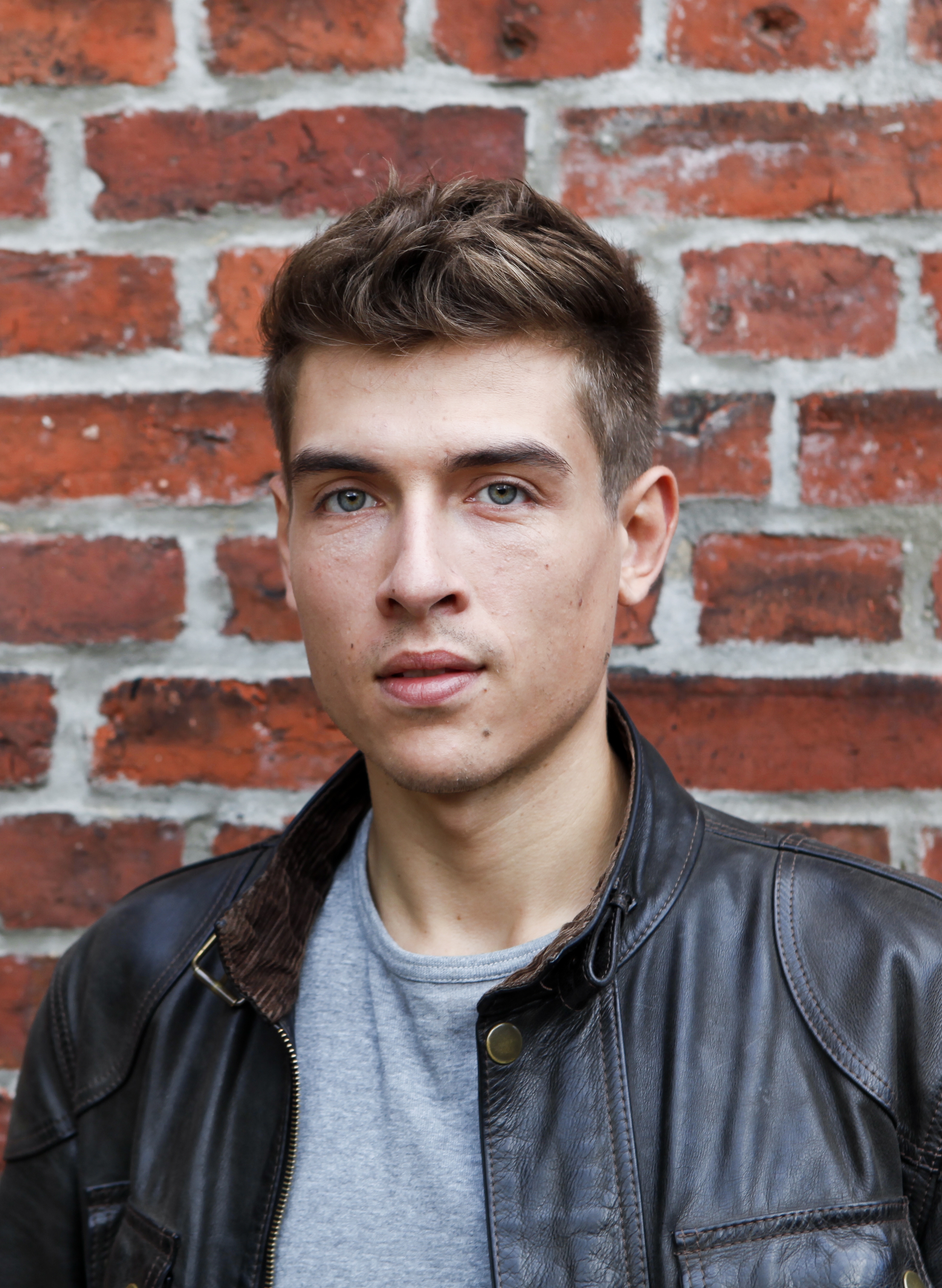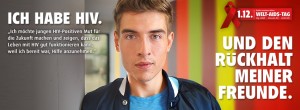
Just over a year ago, Moritz (25) received his positive test result. The diagnosis was a shock. He gradually confided in his family and friends. This helped him to find his footing again. Now the Berliner-by-choice wants to help young positive people in particular through his involvement in this year's World AIDS Day campaign and support them through his story.
Since the end of October, the budding Germanist and musicologist has been at the centre of the campaign with the other ambassadors. What has he experienced so far, why is he involved at all and would he do it again?
Moritz, you've been an official ambassador for this year's World AIDS Day campaign for five weeks now. How have you been getting on in the early days?
Very good. I don't regret my decision to be part of the campaign at all. Of course, I don't know what might come next. Of course, many people around me have realised that I'm working as an ambassador. Some of them first learnt that I am HIV-positive. But the reactions were consistently good. A great experience!
You are on the campaign website as an ambassador and also have a separate Facebook account. But you didn't want to be on posters that hang at railway stations, for example. Why did you decide against it?
I wanted to get involved in the campaign, but I didn't want to be the centre of attention. I also had family reasons for this. My family lives in a small town and I didn't want them to constantly be asked about my son and have to explain things. After all, it was my decision to go public. It was important to me to keep my family out of it.
Well, it didn't quite work out that way...
(laughs) No. There was a report about the campaign on RTL's Punkt 12 programme. I was on there for three seconds. Of course, that meant that more people noticed. For example, colleagues at the company where I work part-time. They then asked me about it. My boss did too. As I didn't want people to gossip behind my back, I came out to the whole company within three days. That was quite exhausting. As I didn't know the people as well as friends or family, I couldn't gauge the reactions. But they all reacted really well. There was no fear of contact. On the contrary, there was a lot of appreciation for what I was doing in the campaign. So, in hindsight, I almost have to say that I was stupid not to have myself printed on posters (laughs).
Why did you decide to put your face and your story forward for the campaign in the first place?
Because it's right that I do it. Quite simply. It's right that someone does it. I don't think there are that many people who are in a situation where they can do it. Simply because their social environment wouldn't allow it. Or because their circle of friends isn't stable enough. Or because their family wouldn't support them. I'm very lucky that everyone around me supports me.
Family and friends are one thing. But what reactions do you get from strangers? On Facebook, for example...
Not much has happened on Facebook yet. There have only been a few messages. And none of them were negative.
Would you like to see more reactions?
Yes, I also think there's more to come. Most of the interviews with me haven't even been published yet. And the highlight of the campaign is yet to come. I think there will be more to come.
Perhaps a TV station will also make an enquiry. Would you go so far into the public eye now after your positive experiences?
Well, if SternTV came along, I wouldn't hesitate (laughs). Before the campaign started, I would probably have turned it down. Today I would do it. Also because it's an easy way to reach a lot of people.

What would you like the public to remember about you and the campaign?
That fear of contact is reduced because there is simply no reason for it. I can touch, hug and kiss an HIV-positive person just like any other person. At work, there is no reason to be cautious or reserved when dealing with an HIV-positive person. To achieve this, the image of HIV and AIDS in society must certainly change. Away from the "old deadly" AIDS and towards a chronic illness that I can live with today without major restrictions. It is particularly important to me that young people who are affected themselves don't bury their heads in the sand. Sure, it sucks when it happens and you have it. It's difficult to deal with at first, especially mentally. But then you have to get on with your life again. Because it's worth it.
What is your personal success in the campaign?
Because colleagues, acquaintances and friends saw me on the Internet or in this RTL report and learnt that I am positive, I have talked to 30 or 40 people about this topic. I was able to reach these 30 or 40 people and they may now have a different view of the whole topic of HIV and their fear of contact has diminished. Simply because we got to know each other better and talked to each other. I think I've already achieved a lot through these encounters alone. And let's see what else happens in the coming days of the campaign.
Interview: Tim Schomann









